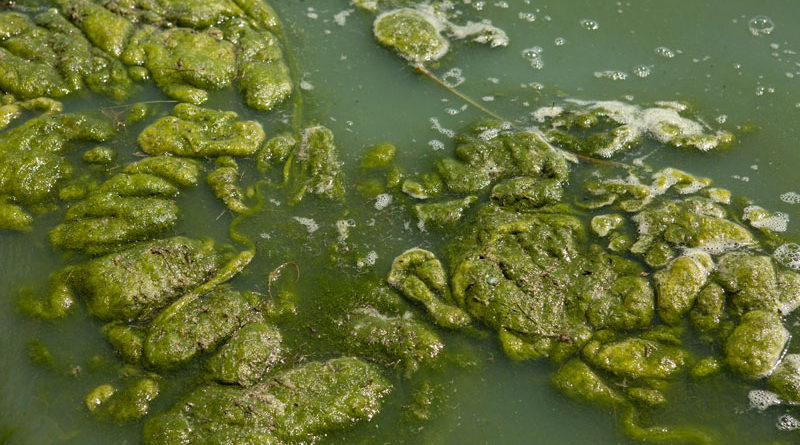Eagle Lake identified as contaminated with cyanobacteria
By John Watson Local Journalism Initiative Reporter

John Watson Photo
Alberta Health Services (AHS) warns residents to steer clear of Eagle Lake this summer, as it has been identified contaminated with cyanobacteria blooms.
Eagle Lake is one of three bodies of water in the AHS Calgary zone which has been identified as being contaminated with cyanobacteria.
Calgary Zone Medical Officer of Health, Christine Kennedy, said there are a number of factors which lead to the growth of cyanobacteria in water bodies – the abnormally warm weather being one of them.
“The conditions that are most favourable for the growth of this type of bacteria are warm, [still] water that’s not stirred up by wind,” she said. “The most important thing that determines whether or not a particular body of water will bloom or not is how much nutrients are available for those bacteria to grow on.”
Bodies of water where large amounts of fertilizers and sewage are allowed to collect are particularly vulnerable to cyanobacteria blooms.
Kennedy added a broad range of adverse health effects can be caused through coming into contact with cyanotoxins.
Skin irritation and rash, sore throat, sore red eyes, lip swelling, stuffy nose, hay fever symptoms can occur from contact exposure to contaminated water. Headaches, diarrhea, weakness, liver damage, fever, nausea, vomiting, muscle and joint pain, abdominal cramps from ingesting cyanotoxins.
“Depending on the concentration of these toxins, some of them are hepatic toxins (cause damage to the liver) [and] some are actually neurotoxic,” she explained.
Kennedy said more than 13 different species of cyanobacteria that can grow in Albertan water bodies. The adverse effects caused may vary by species to species.
She also warned of instances in which livestock and pets which had consumed contaminated water had died as a result.
According to AHS, the notice of cyanobacteria in Eagle Lake is not a “boil water advisory” it is an “all use advisory” which recommends people and animals avoid all contact with the lake.
“If contact on skin occurs, you have to wash with tap water as soon as possible to remove the toxins,” she said. “We also advise on not using blue-green algae contaminated water to water your vegetable gardens because it’s possible that fruits and vegetables – especially leafy greens can absorb toxins and concentrate them.”
AHS also advises against consuming fish or fish trimmings from contaminated water bodies, as well as to do the same for pets.
When a body of water tests positive for cyanobacteria, the advisory is not lifted until the end of the growing season, which often extends into the second or third week of November each year.
